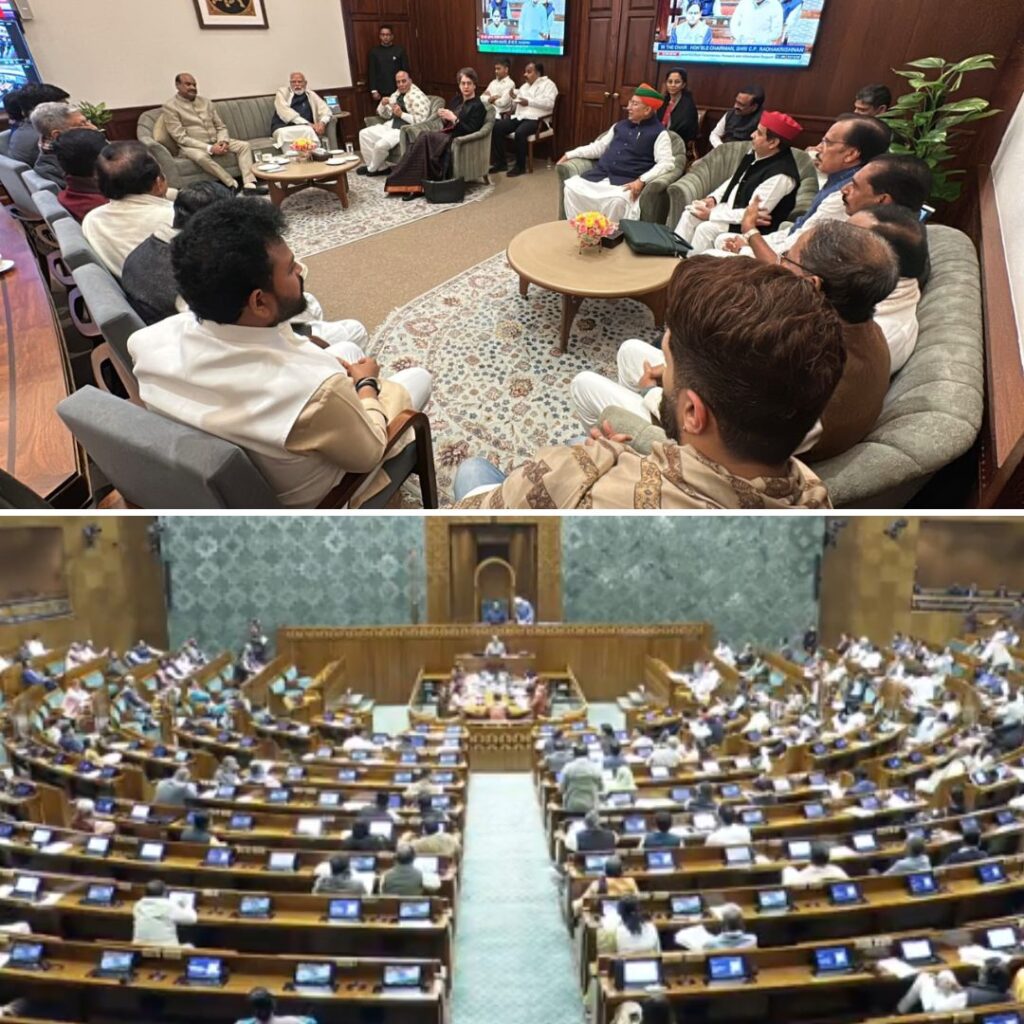The Surrogacy (Regulation) Bill, 2019 passed in Lok Sabha on August 5, seeks to outlaw commercial surrogacy and allows only “altruistic” surrogacy for “needy” couples with proven conditions of infertility.
The bill restricts single parents, same-sex couples, divorced or widowed people, transgender people, live-in partners and foreign nationals from using a surrogate mother.
This bill prohibits commercial surrogacy and allows altruistic surrogacy, one where the surrogate does not receive monetary compensation except medical expenses and insurance coverage.
The bill has received massive backlash from netizens and activists claiming it would take away the livelihoods of women who rented out their wombs and would also violate women’s rights over their bodies.
The government defines a ‘surrogate mother’ as a woman genetically related to the intending couple, married with a child of her own, aged between 25 years and 35 years and allowed to be a surrogate only once in her lifetime. The intending couple requires an official certificate to opt for surrogacy.
One of 35 new bills passed in 37 days over June and August by the Lok Sabha, the Surrogacy (Regulation) Bill, 2019 still awaits approval of the Rajya Sabha.
Bill Will Prevent Exploitation: Govt
The Bill, introduced by Union Health Minister Harsh Vardhan, seeks to ban commercial surrogacy and directs to constitute a National Surrogacy Board, State Surrogacy Boards, and the appointment of appropriate authorities for the regulation of surrogacy.
Speaking on the Bill, Dr Vardhan said: “The Bill is aimed at ending the exploitation of women who are lending their womb for surrogacy and protecting the rights of children born through this. The Bill will also look after the interests of the couple that opt for surrogacy, ensuring that laws are protecting them against exploitation by clinics that are carrying this out as a business.”
“There are very few countries in the world which allow commercial surrogacy, with experts arguing that this is exploitation and abuse of human dignity. We cannot allow women in our country to be exploited without them understanding what is happening with them. The government must protect the interests of these women,” added the Minister.
B V Satyavathi from the Yuvajana Sramika Rythu Congress Party (YSRCP) backed the bill stating that the infertility rate in the country was increasing.
‘Surrogate Mother’ Defined In The Bill
In the new bill, Surrogacy is defined as “ a practice where a woman gives birth to a child for an intending couple with the intention to hand over the child after the birth to the intending couple”. It is permitted for intending couples with proven infertility.
“We cannot permit the rich, famous and celebrities to have surrogate children because of cosmetic reasons and just because they can afford it,” Manasi Mishra from Centre for Social Research said.
The criteria include: The couple intending to commission a surrogacy arrangement should be a close relative of the surrogate mother and should be of Indian origin. They must be married for at least five years and without a child, whether biological, adopted or surrogate. The woman should be between the age of 23 years to 50 years and the man 26 years to 55 years of age.
While there is no accurate data, India has now turned into a global hub for commercial surrogacy 17 years after the start of an unregulated industry, worth about Rs 16,465 crore per year, employing thousands in more than 3,000 clinics nationwide.
In the absence of any regulation, single people, those in live-in relationships, same-sex couples, from India and abroad, could rent a womb to conceive a child in India. This is now restricted to only married and Indian heterosexual couples.
Experts Oppose The Bill
Opposing the bill, experts and activists accuse the bill of taking away the rights of women over their bodies.
Experts said they had suggested reforms but not “a complete umbrella ban”.
Manasi Mishra from Centre for Social Research suggested a regulatory framework with “civil society involvement in monitoring could have been a better alternative. By banning it, the industry will go underground,” said Manasi Mishra.
“Considering the Supreme Court jurisprudence on live-in relationships, children of live-in couples are considered legitimate. Now, by denying surrogacy to these groups, single parents, homosexuals, transgender people – you are denying them their rights, making it a regressive or limited view of what a family is,” said Gargi Mishra, a gender rights lawyer at Sama, a Delhi-based resource group working on issues related to women and health.
Netizens Call It Moral Policing
Netizens have come out in large numbers to oppose the bill and criticise the government for moral policing. Some consider it to be an attempt to control women and their bodies.
“On the other hand, we may raise the question: Why there is so much obsession about having their genetic child through surrogacy. Why would these couples, who are so desperate, not prefer adoption over surrogacy? Isn’t this a double-standard?” asked Manasi Mishra.
Two bills also passed today were the Surrogacy and the Transgender Persons (protection of rights) bills that seek to keep in place the Great Indian Family: the former ensures that same-sex couples, single parents, and live-in couples cannot adopt; 1/2
— Dhamini (@dhamini) August 5, 2019
The #LokSabha, again denies #women agency over their own bodies. The #surrogacybill 2019, seeks to outlaw commercial surrogacy, allows only altruistic surrogacy for couples of proven conditions of infertility.
Women’s bodies are regulated, policed & legislated into dependence.— Srujana Botcha (@SrujanaBotcha) August 7, 2019
The #SurrogacyBill is extremely regressive. It does not allow LGBTQ couples to become parents, makes no provision for singles to become a parent & it’s policing a women’s autonomy over her own body. Why not build laws on safe surrogacy for all the parties involved instead?
— Naina Rai (@nrnainarai) August 7, 2019
Just finished reading the draft bill on surrogacy passed by LS today @drharshvardhan ji. No provision for surrogacy for a single parent. Why? Also if surrogate has to be from related family members will this not even allow greedy relatives to target property of childless?
— Smita���� (@DikshitSmita) August 6, 2019
Some suggested that there should be a modification of adoption processes, so single people and homosexual couples can have children.
Also Read: Breastfeeding Away From Gaze: Uttar Pradesh Bus Stations To Have Babyfeeding Cubicles












